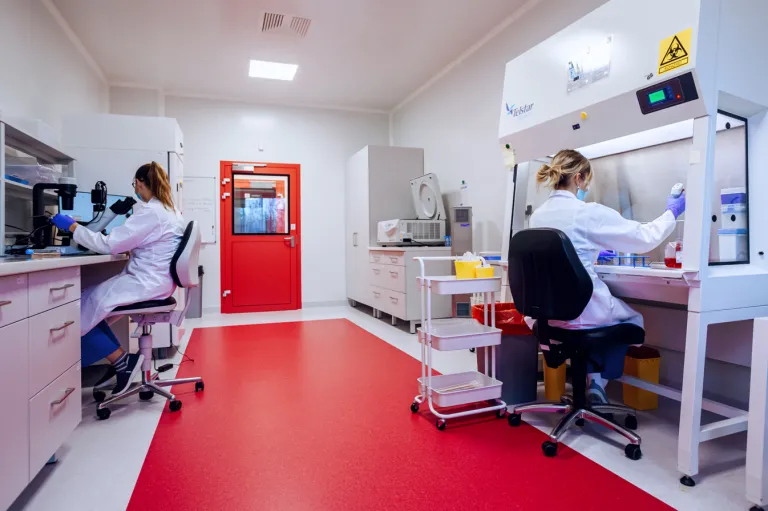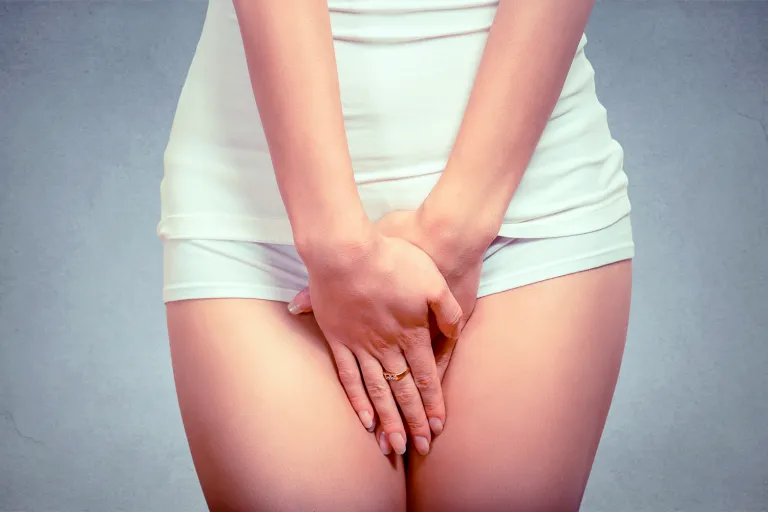Itchy skin can occur for many different reasons. During pregnancy, itching is usually related to stretching skin on the abdomen or inadequate hydration. However, there are times when it can be a symptom of a pregnancy complication such as gestational cholestasis. What are ways to deal with itchy skin during pregnancy?
During pregnancy there are many physiological changes that also affect the skin. More pigmented lesions appear, which are observed in the form of Linea nigra or as darkening of the nipples. Moms-to-be also have an increased sensitivity to UV radiation, which manifests itself through the appearance of the so-called “UV”. Pregnancy osteoma (pregnancy mask). However, most often pregnant women complain about stretch marks in the abdomen, breasts, thighs or buttocks. All these changes are not a sign of pathology, but it is important to remember to consult your doctor with any doubts about emerging symptoms.
Why does the abdomen itch during pregnancy?
Many moms-to-be complain of bothersome abdominal itching during pregnancy. It is usually due to the fact that the skin tightens and stretches. Usually these symptoms diminish when the body is properly moisturized and lubricated. Preparations used for this purpose should contain allantolin or Shea butter.
Itchy skin is also associated with hormonal changes during pregnancy, mainly with progesterone and estrogen levels. The reaction associated with itchy skin is also modified by the concentration of bile acids, the amount of which increases during cholestasis.
Pruritus and dermatological problems in pregnancy
Itchy skin very often appears in the course of various dermatological conditions such as:
- Pemphigoid of pregnancy-commonly referred to as herpes of pregnancy-is characterized, in addition to pruritus, by the presence of burning and a rash. It is a characteristic dermatosis of the pregnancy period. The lesions usually resolve after delivery, but may recur in subsequent pregnancies. Note that it can lead to fetal growth restriction and preterm labor. A characteristic feature is the localization of the first lesions in the umbilical region.
- Lichen herpetiformis- most often appears in III. trimester of pregnancy, and its symptoms include a rash in the perineal area, groin or joint flexures. It occurs quite rarely.
- Scabies- Often appears in the 1st trimester. During its course, itching of the skin is very intense, so disseminated nodular skin lesions are accompanied by laxity and scarring caused by scratching
- PUPPP (Itchy papules and urticarial foci in pregnancy)-appears most often in the last weeks of pregnancy. It is characterized by the appearance of very fine efflorescence without blisters
- Atopic dermatitis-is a chronic disease, usually having its onset in childhood, but can also first appear during pregnancy. In addition to severe itching, the skin in AD is very dry, and the lesions are most often found around the flexures of the joints.
- Polymorphic pregnancy eruptions are distinguished from pemphigoid by the non-occurrence of lesions on the umbilicus. Instead, they localize most often in the area of striae and manifest themselves as merging erythematous foci and intense itching
Note that dermatological diseases of the mother-to-be are not a contraindication to cord blood donation. If, as parents-to-be, you have more questions, we invite you to fill out the contact form.
Itchy skin in pregnancy- cholestasis of pregnancy
In the last trimester of pregnancy, one of its dangerous complications is gestational cholestasis. It is a liver disease associated with excessive secretion of bile acids manifesting itself in the form of, among other things. Itchy skin. It mainly affects the palms of the hands and the soles of the feet and usually intensifies at night. Other symptoms accompanying cholestasis include. Increased levels of bile acids in the blood. Management is based on symptomatic treatment of the mother and control of the fetal condition. Treatment is based on the use of ursodeoxycholic acid. In the case of cholestasis, it is advisable to complete the pregnancy before 40. Week depending on the concentration of bile acids. Possible complications of this condition include fetal hypoxia or placental insufficiency and preterm labor. For this reason, increased pruritus, which appeared especially towards the end of pregnancy, should not be ignored and should be reported to a specialist.
Ways to treat itching in pregnancy
In the case of dermatological conditions, treatment is often related to the disease. These can be various ointments, creams or other medications prescribed by a doctor. Antihistamines and glucocorticosteroids are also used for pruritus, but these should never be taken without consulting a specialist. It is very important during pregnancy to moisturize the skin and use gentle cosmetics that will not further irritate it. For skin allergy symptoms, it is best to eliminate the sensitizing agent from the environment or diet. Dermatologists also often recommend the use of emollients, especially for exacerbations of atopic dermatitis.
Doctors also point out that itching intensifies when the body is heated excessively, such as during hot baths or when sweating. Therefore, the mother-to-be should refrain from taking long, very warm baths. Instead, she should choose airy nightgowns for sleeping so as not to increase her discomfort.
Recently, cosmetics with natural composition have become very popular. However, it is important to remember that pregnant women are more prone to contact eczema, and these preparations are not cleared of allergens that can cause allergic reactions.
See also: Allergy in pregnancy – where does it come from how to treat it?
Rate this article:











